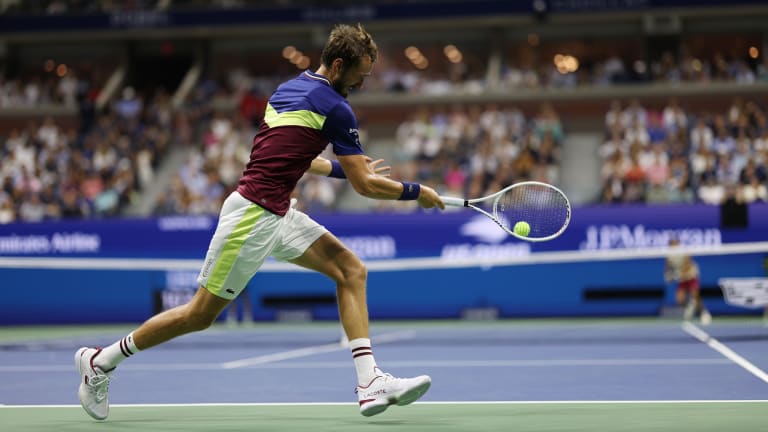US Open
Daniil Medvedev was stubborn to a fault at the US Open, but still came away a winner
By Sep 13, 2023US Open
Eric Butorac will replace Stacey Allaster as US Open tournament director
By Nov 17, 2025US Open
Beyond The Champions: 2025 US Open Winners and Losers
By Sep 10, 2025US Open
In US Open defeat, Jannik Sinner faces his shortcomings
By Sep 09, 2025US Open
Amanda Anisimova's US Open fortnight wasn't just "incredible"—it was redemptive
By Sep 09, 2025US Open
Overcoming Doubt, Finding Deliverance: Six WTA takeaways from the 2025 US Open
By Sep 08, 2025US Open
Service and a smile: How Carlos Alcaraz conquered Jannik Sinner at the 2025 US Open
By Sep 08, 2025US Open
Carlos Alcaraz captures sixth Slam and second US Open title, dethrones No. 1 Jannik Sinner
By Sep 07, 2025US Open
Alcaraz vs. Sinner US Open final start delayed by 30 minutes
By Sep 07, 2025US Open
Blinding Lights: Amanda Anisimova rues missed opportunities, serve woes after US Open final
By Sep 07, 2025Daniil Medvedev was stubborn to a fault at the US Open, but still came away a winner
With his win over Alcaraz and his challenge to Djokovic, the Russian reminded us that he remains at the very top of the game.
Published Sep 13, 2023
Advertising
![“I should have been less stubborn and gone forward earlier in the match, but I only started doing it a little bit in the third set,” said Medvedev. “But [by then] the match was a different story.”](https://images.tennis.com/image/private/t_16-9_768/f_auto/tenniscom-prd/cakzhwufl32xo9a6uaji.jpg)
“I should have been less stubborn and gone forward earlier in the match, but I only started doing it a little bit in the third set,” said Medvedev. “But [by then] the match was a different story.”
© Corbis via Getty Images
Advertising
Advertising

Most important for Medvedev, it seemed, was showing that he can still beat someone like Alcaraz playing his normal, back-of-the-court style.
© Getty Images